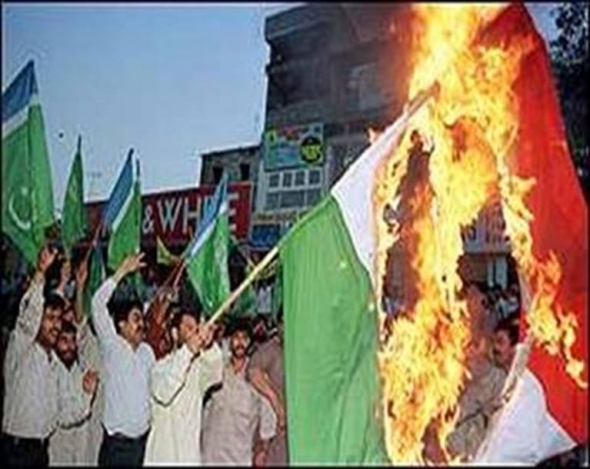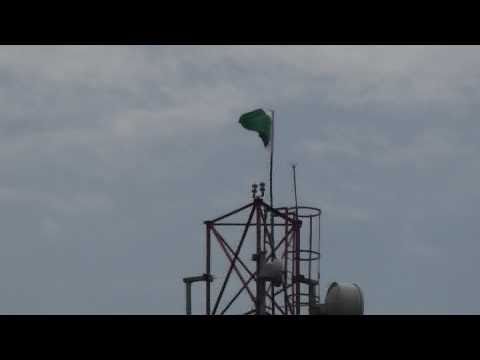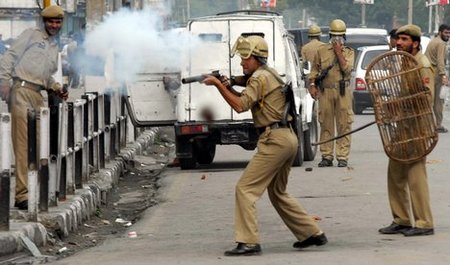kṣamā;3475511 said:
The answer is quite simple, A religion is nothing but an unwritten rule set which guides a person through his day. The people in Indian subcontinent though being tolerant dinn accept any other version of the same rule set.
Its why half of the sub continent is Muslim...
For your information that is 'tear gas'.
And this?
Indian police open fire on Kashmir demonstrators
By Amy Kazmin in New Delhi
Indian paramilitary forces opened fire on angry anti-India protestors in several different parts of the troubled Muslim-majority state of Kashmir on Friday, killing at least three people, critically injuring a fourth and injuring scores of others.
Violence in the restive Himalayan valley initially erupted in the morning, as residents of Srinagar, the capital, heeded a separatist call to defy a curfew imposed across the city. As young men chanting anti-India slogans hurled stones at paramilitary police trying to enforce the curfew, the security forces opened fire, wounding two young men – one critically.
News of the injury spread, inflaming already high tensions, and fuelling violent protests across the Kashmir valley.
In Sopore town, more than 1,500 people clashed with security forces, who opened fire on the crowd – killing a 55-year-old man and a 20-year-old, and wounding others. In Baramulla, an angry mob reportedly attacked a police station, and set it on fire, with nine police officers inside, who were all later rescued.
Authorities were still struggling on Friday evening to assess the full toll from various clashes, but hospitals told Kashmiri journalists that they were treating at least 30 people with bullet wounds.
Critics said that India had created an explosive situation by failing to recognise the depth of Kashmiri anger, and suppressing any space for peaceful, civilian protest.
“They have turned Kashmir into a prison,” said Farrukh Faheem, a Delhi University professor who comes from Kashmir, and has studied the history of militancy in the valley. “You are not allowed to have a peaceful protest. You are not allowed to express your view of Facebook . What the state is trying to convey is that ‘no matter what you do, we are going to crush you.’”
India has been struggling for nearly two months manage an eruption of Kashmiri rage against its heavy-handed rule, and a string of human rights abuses by the heavily armed security forces who maintain an overbearing presence in the region, despite the sharp decline in militancy over the last few years.
In recent months, crowds of angry youth, many of whom grew up at the height of Kashmir’s armed separatist insurgency – and its brutal suppression by Indian security forces, have been mounting almost suicidal attacks on heavily-armed security forces, pelting them with stones, and in some cases rushing their police posts.
Before Fridays’s clashes, at least 17 civilians, including a woman and a nine-year-old boy, had been killed in retaliatory police firing over the last six weeks, adding to the public outrage.
In a bid to restore order, the government called the army onto the streets of Srinagar this month, and an estimated 1400 youth, including numerous teenage boys younger than 18, have been rounded up under strict public security laws that allow them to be held for up to two years without trial. Many of these detainees are now being held in Srinagar prison, where they are being held alongside at least 24 hardened foreign Islamist militants, serving life sentences for murder and other serious crimes.
The Muslim-majority Kashmir region, famed for its natural beauty, has been at the centre of three wars between India and Pakistan, which both claim it as their own. Nearly 70,000 people have died in the region since the 1989 eruption of a Pakistan-based separatist insurgency in the region, and the ruthless Indian countermeasures.
Militant violence has dropped sharply since 2006, but the region remains heavily militarised, with security forces maintaining a highly visible presence in towns and villages across the state.
Srinagar has been almost totally shut down for the last six weeks, alternatively by curfews imposed by authorities, or strikes called by separatists.
















